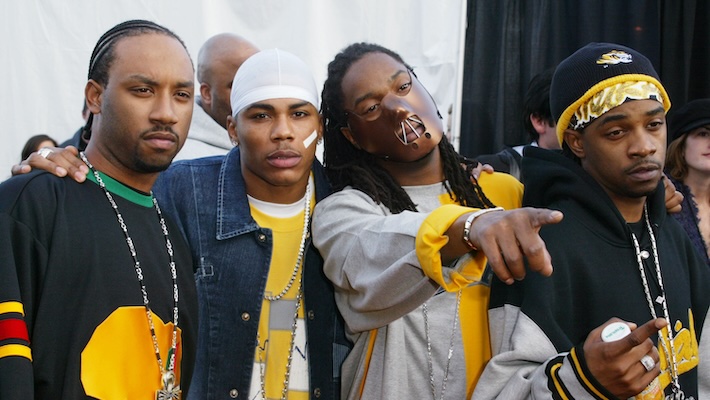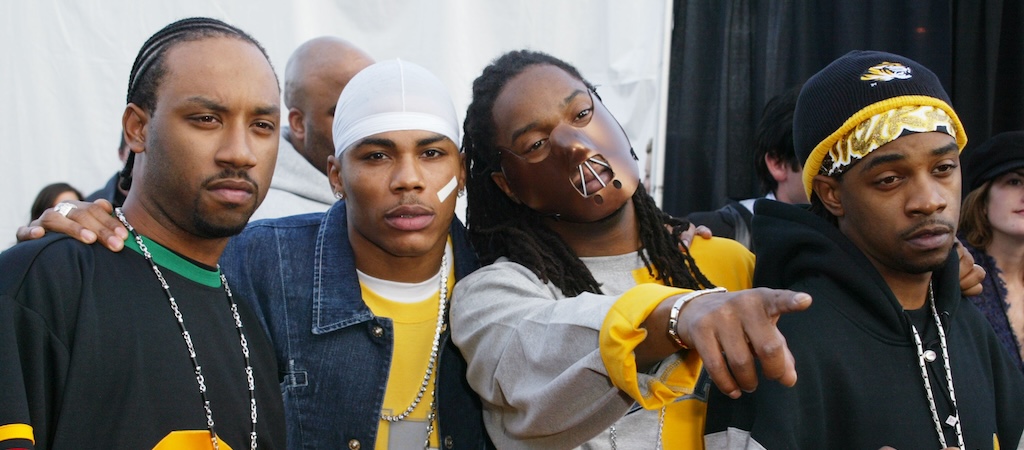
Millennials are having it rough lately; in addition to dismal employment, housing, and romantic prospects all around, our nostalgic memories of our childhoods — all we have to hold onto, really — have been upended a whole bunch in recent months.
The latest upheaval: Nelly is being sued by members of his former group, St. Lunatics, over songwriting credits and royalties from his hit debut album, Country Grammar. Released in 2000 to widespread acclaim and truly breathtaking commercial success — it spent five weeks at No. 1 on the Billboard 200 — Country Grammar spawned three top-40 hits: “E.I.,” “Ride Wit Me,” and the title track. It also launched the St. Lunatics’ empire, which consisted of sneakers, energy drinks, clothing lines, and even an appearance in NBA Street Vol. 2 as playable characters.
Unfortunately, according to Ali, City Spud, Kyjuan, and Murphy Lee, Nelly did not give them fair credit on the album, keeping them from being properly paid for a number of its tracks which they say they helped co-write (the group’s sixth member, Slo Down, is not included as a plaintiff). Although various members are listed as co-writers throughout the album, they say they weren’t credited on “Country Grammar,” “Steal the Show,” “Thicky Thick Girl,” and “Wrap Sumden.”
Nelly has previously acknowledged that his friends wrote on those songs (it’s no secret that he was never the strongest lyricist in the group, and that they rallied behind him specifically to get their foot in the door as a collective). However, the lawsuit says, “Despite repeatedly promising plaintiffs that they would receive full recognition and credit… it eventually became clear that defendant Haynes had no intention of providing the plaintiffs with any such credit or recognition.”
According to Billboard, though, the case could be complicated by the St. Lunatics claiming ownership rather than infringement, as “copyright infringement lawsuits can be filed decades after an infringing song is released, disputes over copyright ownership face a stricter three-year statute of limitations.”
As for why it took the group so long to pursue legal action,they explain, “Unfortunately, plaintiffs, reasonably believing that their friend and former band member would never steal credit for writing the original compositions, did not initially pursue any legal remedies.” After retaining legal counsel and reaching out to Universal Music Publishing Group, they were referred to Nelly’s attorneys, who they say “expressly repudiated” their claims in 2021.
Nelly, of course, sold half of his catalog in 2023 for $50 million. He’s not just facing civil issues at the moment, either; he was arrested in August for possession of ecstasy.


